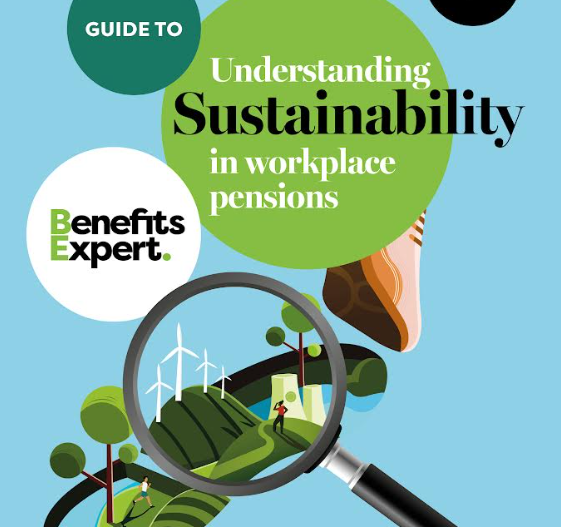Workplace pension funds have significantly reduced the carbon footprint of their investment portfolios, exclusive research has revealed.
DOWNLOAD YOUR COPY HERE
A study of 20 major pension providers has revealed that seven of them have reduced the carbon footprint of their defined contribution (DC) portfolios by 50 percent or more in the past year.
As a result, the average carbon footprint of DC pensions is now 61.1 tonnes of carbon per million pounds sterling invested, according to the research published in the ‘Guide to understanding sustainability in workplace pensions‘ from Benefits Expert.
The pensions sector is leading the way on sustainability reporting in the UK, disclosing carbon metrics in greater detail than most other areas of the financial services sector.
The data also showed that pension schemes that reduce portfolio carbon emissions do not experience lower investment returns, dispelling concerns that lower carbon outputs hurt financial returns.
Footprint gap
However, all sustainable pensions are not created equal. The research highlighted a big difference in carbon footprints between pension providers even though the overall trend is towards decarbonisation.
The lowest carbon emission among the 20 providers was 23.4 tonnes of carbon per £million invested, while the highest was 108 tonnes of carbon per £million.
These differences can be partly explained by different portfolio mixes, the metrics used to report progress and when the results are reported.
Larger pension trusts must disclose a range of information under the Taskforce for Climate Related Financial Disclosures (TCFD), however, they have up to seven months from the of the end of the scheme year to share this data. As a result, the data published by some schemes may be six months, or almost a year, behind that of other schemes.
But saving with a more environmental, social and governance (ESG) focused pension can still slash an individual’s carbon footprint dramatically. Research from Make My Money Matter has suggested that an ESG-friendly pension can cut a person’s carbon footprint 21 times more than becoming vegetarian, giving up flying and switching energy providers.
Strategy shift
There may be big differences between providers in how much they have decarbonised, but the research found that four fifths of pension providers now use ESG measures to identify and invest in companies with good ESG ratings.
As ESG screening has increased, the most widely excluded investment assets were found to be controversial weapons manufacturers, thermal tar and violators of the UN Global Compact.
Despite this progress in sustainability, a Benefits Expert poll found that employer engagement with sustainable pensions may be lagging growing employee interest in this area. The poll showed that HR professionals rated their pension providers’ efforts on green investment strategy as the least important thing.
HR in a strong position
Claire Churchard, editor of Benefits Expert, said: “More and more employees want sustainable benefits and an ESG-friendly pension can be a crucial part of that.
“This research, from Benefits Expert in partnership with Corporate Adviser Intelligence, looks at how and why the landscape of sustainable pension provision is evolving. It examines how pension providers are decarbonising their portfolios, the strategies they are using, and shares the details of the carbon footprints of leading DC schemes, with some surprising results.
“The data shows that many providers are taking the shift to ESG beyond what might be expected by actively reducing their carbon footprints and investing in community focused businesses.
“This wealth of information puts HR, reward and benefits professionals in a strong position to help employees understand the sustainability of their pension. Just having a conversation about it will go some way to boosting employee engagement with other workplace benefits. And when pension dashboards and other legislative changes come into effect, interest in where pension pots are invested is only going to increase.”
- The full research is detailed in Benefits Expert’s ‘Guide to understanding sustainability in workplace pensions 2024’, which is available here.












